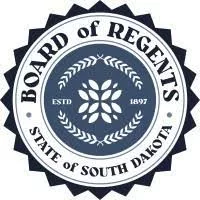
RAPID CITY. SD – Today, the South Dakota Board of Regents (BOR) announced a proposed addition to its
academic curriculum: a comprehensive Civics Literacy Requirement aimed at equipping students with the
knowledge and skills necessary to become involved citizens.
During their October meeting, the Regents discussed the importance of preparing students to be engaged and
informed residents. As part of South Dakota’s public universities’ commitment to fostering active and
responsible students, BOR is proud to announce the exploration of a civics literacy requirement for its
graduates.
“Most students who graduate from a South Dakota public university stay in state and establish their careers
here,” said BOR President Tim Rave. “We understand our role in preparing our state’s workforce, and we want
to take it a step further by cultivating civic engagement in future generations of lawmakers, city council
representatives, school board members, and more.”
The BOR’s Fiscal Year 2025 System Center for Civic Engagement budget request serves as the cornerstone for
the programming and engagement envisioned for the civics literacy requirement, allowing the BOR to enhance
activity in this important area without passing the cost on to students. A strong civics literacy program will help
prepare students to engage in their local communities through service-learning projects, internships, and
partnerships with civic organizations, ultimately benefiting us all.
“Civics literacy is a non-partisan issue that includes enhancing both knowledge and practical application,” said
BOR Executive Director Nathan Lukkes. “We need to provide a solid framework for our students to develop the
necessary skills in critical thinking, civility, and dispute resolution, while enhancing their understanding and
engagement in issues of local, national, and global importance.”
The BOR Civics Literacy Requirement hopes to empower students to participate in the democratic process and
contribute to their communities and the state of South Dakota. More information concerning the details on the
programming and associated requirements will be available in the coming months.


